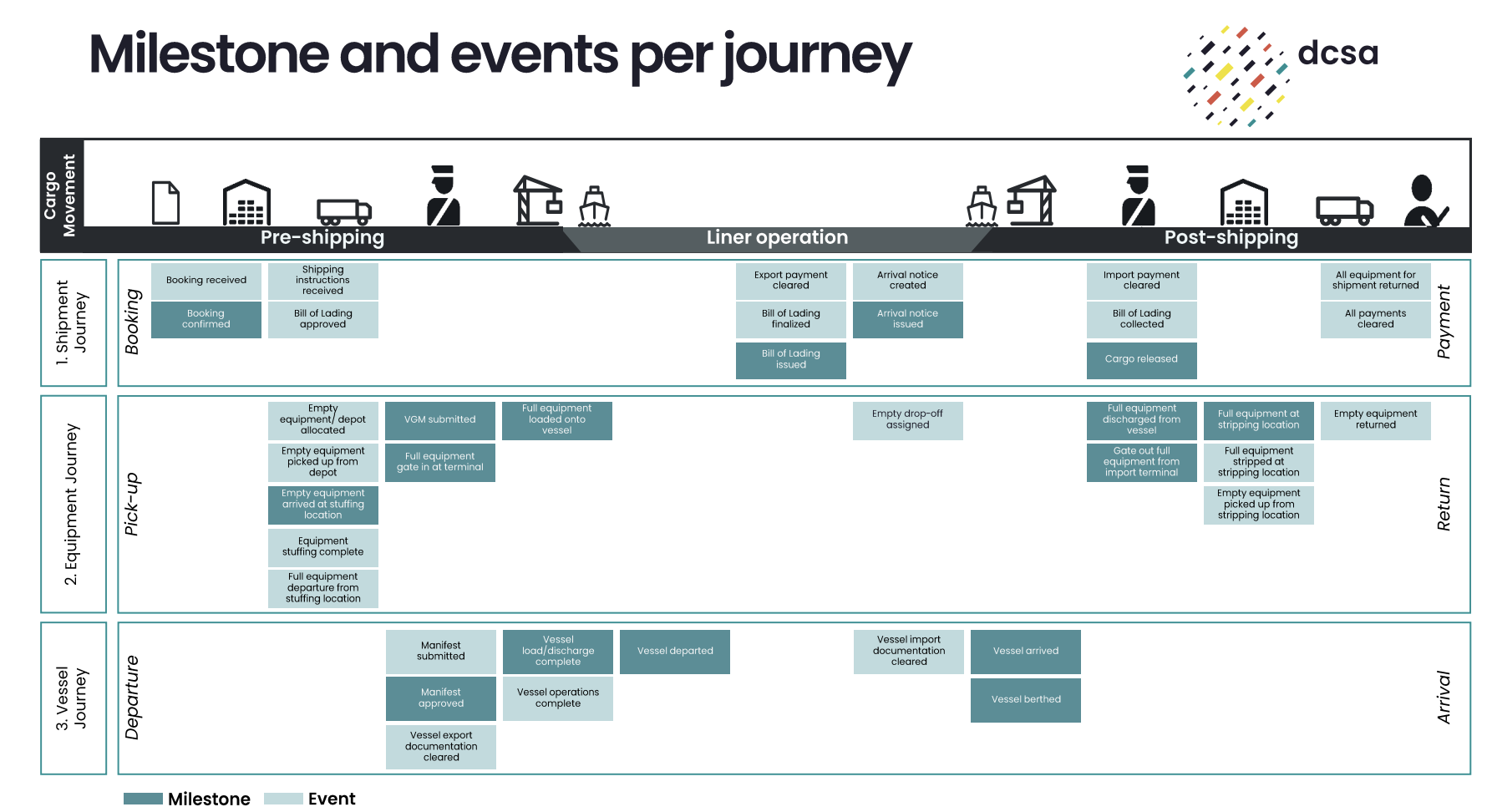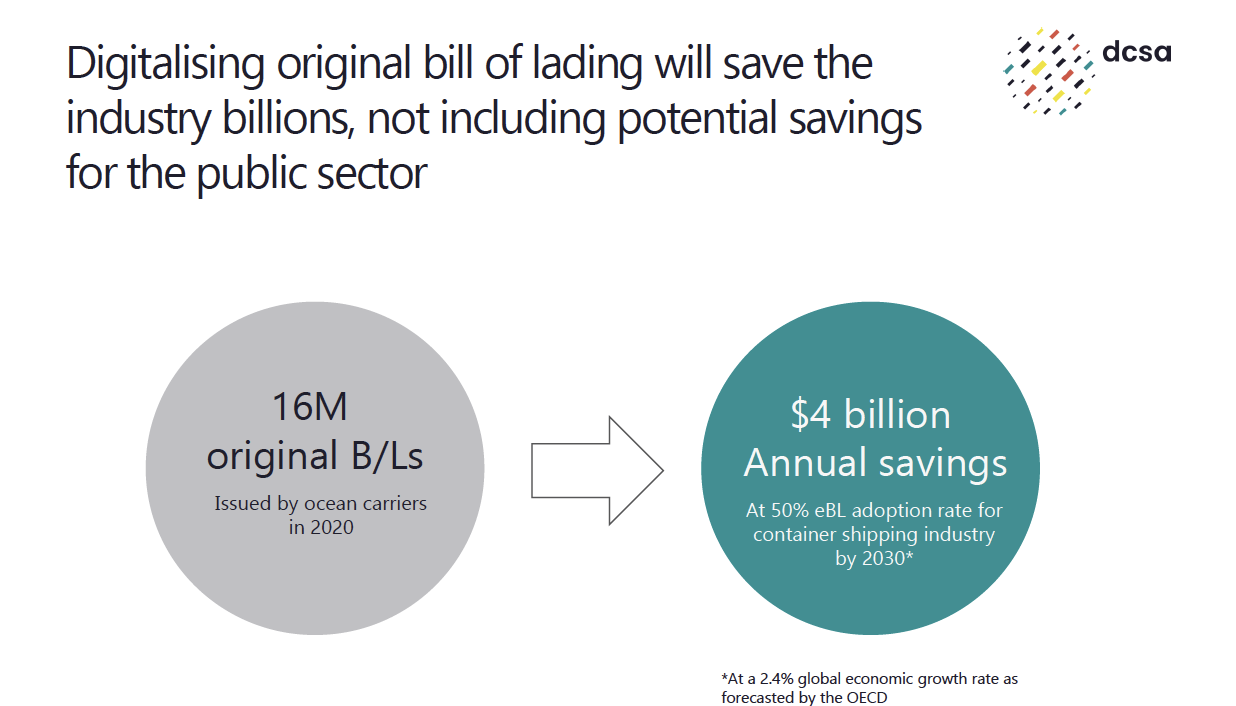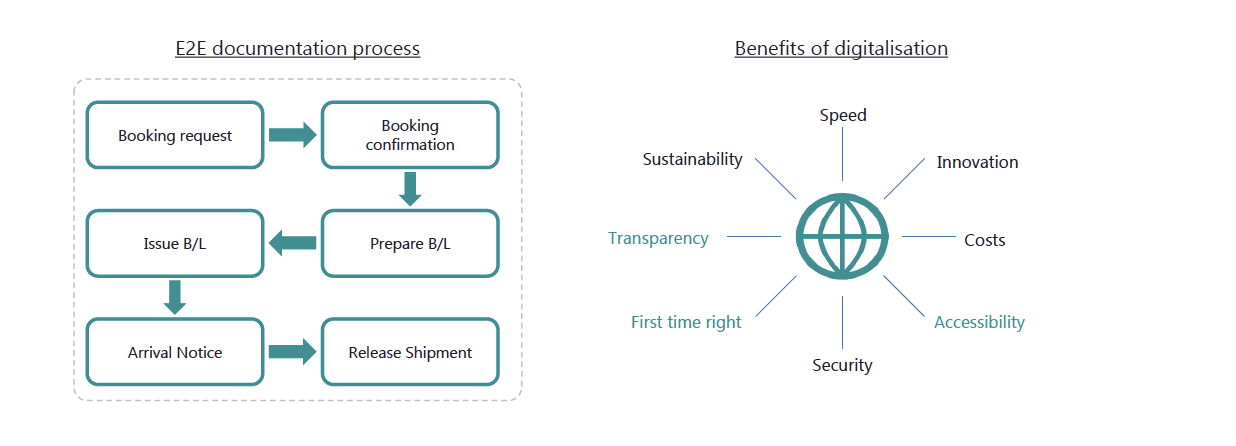A. General Information
Digital Container Shipping Association –standardised foundation for digitalisation
B. Lessons Learned
The Digital Container Shipping Association has published data and process standards for the submission of shipping instructions and issuance of the bill of lading, on a global scale, to facilitate acceptance and adoption of an electronic bill of lading, by all stakeholders involved in a transaction.
By setting frameworks for effective, universally adaptable solutions and innovating, we can enable transparent, reliable, easy to use, secure and environmentally friendly container transportation services.
Electronic documentation standards benefit all participants, including customs

The multi-year DCSA eDocumentation initiative will deliver standards to enable digitalization of end-to-end container shipping documentation.
Development of Industry Standards for data flow between the relevant stakeholders.
e-Bill of Lading
DCSA B/L standards are aligned with the UN/CEFACT (United Nations Centre for Trade Facilitation and Electronic Business) multimodal transport reference data model to ensure a global industry framework that accelerates digitalisation through a unified industry effort.
eBL interoperability will simplify global trade, but adoption requires collaboration
Other industries, such as banking, telecoms and airlines, have shown us that standards are a must to create an industry-wide foundation for interoperability that enables the seamless end-to-end flow of data.
For customs specifically, this should address highly important aspects such as the quality and processing of the data.

Subsequent releases of the DCSA eDocumentation initiative will include data and process standards for: booking requests and confirmations, arrival notices and release shipments.
The FIT Alliance
Uniting behind the mission to standardize the digitalization of international trade, DCSA BIMCO, FIATA ICC and SWIFT have formed the FIT Alliance. The FIT Alliance will work to generate awareness about the importance of common and interoperable data standards and common legislative conditions across international jurisdictions and platforms. The aim is to facilitate acceptance and adoption of an eBL by regulators, banks and insurers and to unify communication between these organizations and customers, physical and contractual carriers, and all other stakeholders involved in an international trade transaction.
C. Relevant Standards
In addition to the standards documents, DCSA has also published API definitions for the Bill of Lading on Swaggerhub, an open-source API development platform. Carriers can use these definitions to rapidly implement DCSA standard-compliant APIs.
Documentation on the Bill of Lading standard, including versioning guidance, can be found on GitHub.
Bill of Lading Publication
The DCSA Standard for the Bill of Lading publication includes updates to the DCSA Industry Blueprint and Information Model.
Download the standard and updated documents below to get started immediately on streamlining and aligning your paper-based B/L data and processes.


